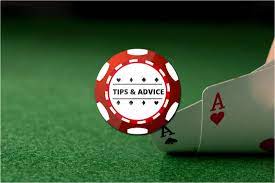To play blackjack like a Pro and win consistently is all too easy if you know how…
Professionals in blackjack gaming are unlike those you watch in movies – they do not flaunt their wealth, they do not wear flamboyant clothing and they do not have hickies. What they have is a Professionals instinct for judging the cards in their hands and their opponents, based on thousands of hands played and years of playing, rather than their emotions.
In reality, it is more of a mind reading and a game of data-collection than a game of chance, maybe even more so because Vegas is a place where you can actually lose money if you are not professional.
This is not to say that blackjack is a egp88 of chance, because it is not, but being a professional means understanding the mental game of risk vs. reward and knowing when to play and when to back down.
- Game of Chance
Sportsbooks in Las Vegas are sieved by machine-like computers that randomly select cards from a hopper. Those cards are delivered via a network of spinning slots. You know on which side of the coin you are standing as the game is still in progress.
At Sportsbook, you can get a dozen snap shots of the hopper, and where cards are coming from based on the discarded, showed, and played card speeds. Sure, the computer select cards at random, but guess what? It is not possible to predict what card will come out next.
- Re- sourcing Your Bankroll
If you cannot raise your wagers in step with rising bankroll, you will go broke. The going may be slow early on, but if you cannot raise your wager to match your aggressiveness, you will be bleeding out your bankroll. This is where bankroll management comes into play.
Professional blackjack players will always have a number in their head of what the current bankroll is (or will soon be) and they will base their wagers from that number. If for whatever reason, they cannot raise their wager to match their bankroll, they know they can recoup some of the funds that they are going to lose by making current wagers while they are winning.
- Manage Your Bankroll
You need to sell some equity in your bankroll to manage your risk, but you also need to bet with it, and beocratic your bankroll into your wage. You want to bet enough to make a profit, but not enough to risk going broke. I recommend using an example of around 5% of your bankroll for a single play or tournament.
If you are a $10,000 bankroll player, and you bet $50 per hand in a cash game, you should probably bet $75 or $150 (depending on the rules/house edge of the particular game you are playing) if you are catching 2 or 3 hands. As you raise your bankroll and start earning more chips, you can increase this figure.
For example, let’s say you start with $10,000 and you have played ten tournaments. You have turned in each of the following hands:
That’s a total of $1,000, which is obviously above the table limit. The math of 10 tournaments equals $10,000 x 10 = $1,000. Obviously, it’s too much risk to bet that much so you decrease your bet to $75 or $150. Thisripped-up figure represents the amount you should bet per hand in a cash game or tournament.
That way, even if you lose a tournament or two, you will only lose the money you Bet per hand. If you win, you raise your bankroll and now you are at $10,000 + $75 or $150. This gives you the bankroll you need to continue to play tournaments.
- Know Your Opponents
Take notice of your opponents, but focus more on the play of your opponents than their dilations. onlookers to the play the opponents rather than the players. When you are paying attention to the “action” of the players rather than the players themselves, you will have a major advantage later on in the hand.
For example, you are in the big blind. Player 3 raises the minimum. You call. The flop is J-5-4. Player 3 bets $50. You call. The turn is an 8. Player 3 bets $100. You raise to $200. Player 3 re-raises you all-in. You fold.
It is shown that Player 3 has an above average stack. Although you didn’t hit the flop, you believe you have the best hand. You are at a disadvantage, however, because the board cards you saw were 9-8-J.
